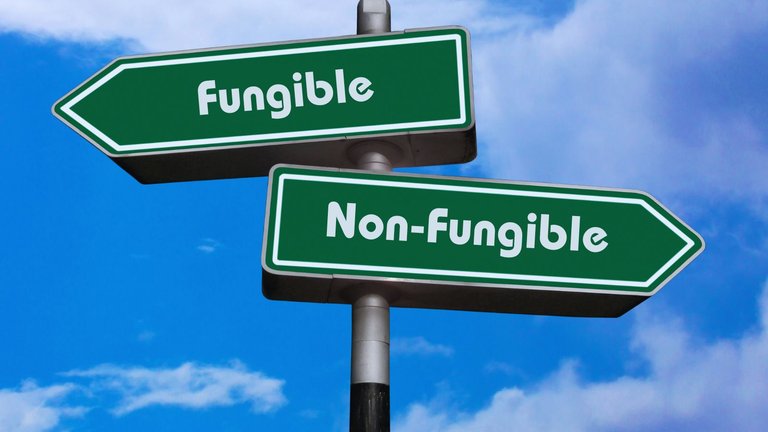Understanding the Difference Between Fungible Versus Non-Fungible Cryptocurrencies

There is a big debate on whether or not many cryptocurrencies like Bitcoin, Bitcoin Cash, and Litecoin are actually fungible coins as they are marketed to be. With all of the regulatory crack downs by oversized and corrupt governments and blockchain analysis groups doing their dirty work for them, we are finding that these coins are not as 'fungible' as we have been led to believe. So let's get into the difference of what fungible versus non-fungible actually means and I hope it sheds some light on the subject.
What is Fungibility?
Fungibility is a term that describes whether individual units of a good or asset are interchangeable and indistinguishable from each other. In simpler terms, a fungible asset is something that can be easily exchanged with another identical asset. For example, if you lend someone a dollar, you don't care which specific dollar bill they return to you because all dollar bills are considered the same.
Gold and silver are fungible assets because it doesn't matter what kind of coin you have, you can melt the metal down and create another coin out of the same metal. In essence, 1 ounce of the precious metal equals one ounce of the precious metal, no matter where or in what form it came in.
The Issue with Bitcoin's Fungibility
Bitcoin, the most well-known cryptocurrency, is often assumed to be fungible because each Bitcoin can be exchanged for another Bitcoin. However, this assumption falls apart when you consider the transparency of Bitcoin's blockchain. Every transaction made with Bitcoin is recorded on a public ledger, allowing anyone to trace the history of each Bitcoin. This means that every fraction of a Bitcoin can be tied to its past transactions.
Imagine you receive a Bitcoin that was once used in illicit activities, like drug trafficking or money laundering. Even if you were unaware of its shady past, your wallet could be flagged or blacklisted by exchanges, making it difficult to trade or use that Bitcoin. Governments and regulatory bodies could also track your transactions due to the transparency of the blockchain which could lead to some legal trouble if they trace your coins back to say some kind of drug dealer, terrorists, etc. This traceability contradicts the idea of fungibility because the history of each Bitcoin makes it distinguishable from others.
True Fungibility and The Case of Monero
True fungibility means that one unit of a currency is indistinguishable from another. In the world of cryptocurrencies, Monero is a prime example of this concept. Monero is designed with privacy at its core, ensuring that transactions are untraceable and unlinkable. When you receive Monero, there is no way to trace its history or determine where it came from. This privacy feature means that all Monero coins are identical and fully interchangeable, embodying the true essence of fungibility.
Monero achieves this through advanced cryptographic techniques that hide transaction details. This makes it impossible for third parties to track the movement of Monero coins, ensuring that users can enjoy privacy and security. In essence, Monero provides true fungibility by making every coin indistinguishable from the next, free from the taint of previous transactions.
Why Fungibility Matters
Fungibility is crucial for any currency because it ensures that all units of the currency are valued equally. Without true fungibility, a currency cannot function effectively as a medium of exchange. In the case of cryptocurrencies, fungibility is important for maintaining privacy and protecting users from being unfairly penalized for unknowingly possessing "tainted" coins.
Non-fungibility works for things like NFTs, because you want each item to be different than the others, but it doesn't work for an actual medium of exchange currency, which is why completely transparent coins are not really a great medium of exchange. We are even seeing this issue with USDT and USDC on various transparent blockchain networks after the Tornado Cash fallout as well as other hacks where the tokens were traced back to exchange accounts. This is not fungible...
Conclusion
So, while Bitcoin and other transparent blockchains offer many advantages for ownership and maybe a reserve type asset, their lack of true fungibility poses significant challenges when being used as an actual currency. The ability to trace the history of every coin undermines the concept of interchangeability and exposes users to some serious potential risks. Monero, with its focus on privacy and untraceability, stands out as a cryptocurrency that embodies true fungibility, ensuring that all coins are treated equally and without prejudice.
As the world of cryptocurrencies continues to evolve, the importance of fungibility will remain a key factor in determining the success and usability of digital currencies. So now I hope you have a better understanding of the true difference in fungible versus non-fungible coins and tokens.
Wanna get on a path to financial freedom?
Join the Logical Trading Academy!
https://logicaltrading.academy
Trading Education | Personal Coaching | Market Analysis | Custom Trading Indicator
Get my 'Anyone Can Be A Trader' eBook Today!
Just getting started as a trader? Check out my latest book that can give you some direction for your trading journey!
'Anyone Can Be A Trader' is available on the Logical Trading Academy store where you can pay with credit/debit cards or get a discount if you pay with crypto!
Get edge in the markets with the Logical Trading Indicator
Get this game changing indicator that can help you gain some serious edge in the markets while still living your life!
Get the Logical Trading Indicator and start trading logically today!
Additional Blog Locations
Many of my cryptocurrency related articles as well as trading articles can also be found on my crypto research site, Coin Logic.
I also post trading chart ideas on my TradingView Profile.
Disclaimer:
The information in this trade journal is for educational purposes only and should not be considered financial advice. Please consult with a qualified financial advisor before making any investment decisions.
